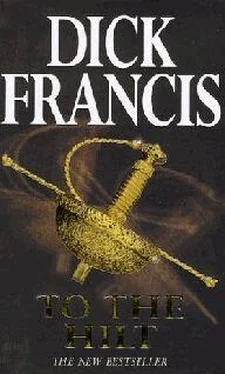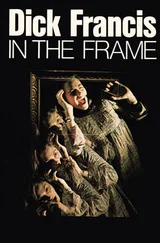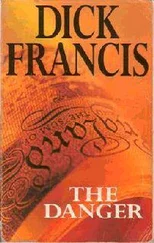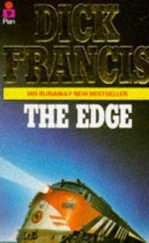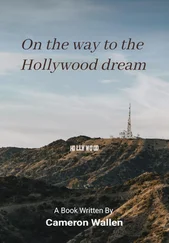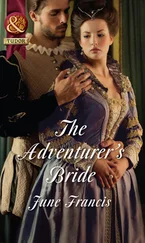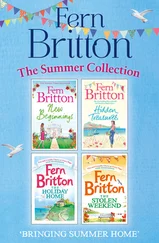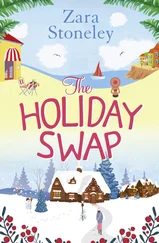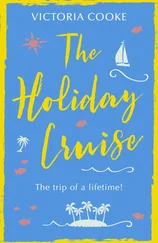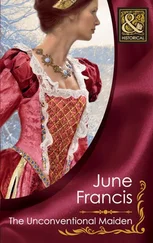by Francis - TO THE HILT
Здесь есть возможность читать онлайн «by Francis - TO THE HILT» весь текст электронной книги совершенно бесплатно (целиком полную версию без сокращений). В некоторых случаях можно слушать аудио, скачать через торрент в формате fb2 и присутствует краткое содержание. Жанр: на английском языке. Описание произведения, (предисловие) а так же отзывы посетителей доступны на портале библиотеки ЛибКат.
- Название:TO THE HILT
- Автор:
- Жанр:
- Год:неизвестен
- ISBN:нет данных
- Рейтинг книги:5 / 5. Голосов: 1
-
Избранное:Добавить в избранное
- Отзывы:
-
Ваша оценка:
- 100
- 1
- 2
- 3
- 4
- 5
TO THE HILT: краткое содержание, описание и аннотация
Предлагаем к чтению аннотацию, описание, краткое содержание или предисловие (зависит от того, что написал сам автор книги «TO THE HILT»). Если вы не нашли необходимую информацию о книге — напишите в комментариях, мы постараемся отыскать её.
TO THE HILT — читать онлайн бесплатно полную книгу (весь текст) целиком
Ниже представлен текст книги, разбитый по страницам. Система сохранения места последней прочитанной страницы, позволяет с удобством читать онлайн бесплатно книгу «TO THE HILT», без необходимости каждый раз заново искать на чём Вы остановились. Поставьте закладку, и сможете в любой момент перейти на страницу, на которой закончили чтение.
Интервал:
Закладка:
'How much did Ivan say?'
'He said it was a symbol. He says you can't put a price on a symbol.'
'I suppose he's right.'
We walked a way in silence, then he said, 'I told Ivan I wanted to get the Cup valued. If he wanted me to get you to look after it, I had to know its worth.'
'What did he say?'
'He got very agitated. He said if I took it to a reputable valuer he would end up losing it. He said it was too well known. He began panting with distress. I had to assure him I wouldn't take it to anyone that would recognise it.'
'But,' I said, 'no one else could give you a reliable estimate.'
He smiled. We rounded the southernmost corner and turned our faces into the endless wind.
"This afternoon,' he said, raising his voice, 'we'll find out.'
The valuer summoned to the castle was neither an auctioneer nor a jeweller, but a thin eighty-year-old woman, a retired lecturer in English from St Andrew's University, Dr Zoл Lang, with a comet tail of distinguished qualifications after her name.
My uncle explained he had met her 'at some function or other', and when she arrived, gushing but overwhelmingly intellectual, he waved a vague hand in my direction and introduced me as 'Al, one of my many nephews'.
'How do you do?' Dr Lang asked politely, giving me a strong bony handshake with her gaze elsewhere. 'Cold day, isn't it?'
Himself made practised small-talk and led the way into the dining-room, where with gentle ceremony he sat his guest at the table.
'Al,' he said to me, 'there's a box in the sideboard, right-hand cupboard. Put it on the table, would you?'
I found and carried across a large brown cardboard box stuck all over with sticky tape and conspicuously marked in big black handwritten capitals, 'Books. Property of Sir I. Westering'.
'Open it, Al,' Himself instructed without excitement. 'Let's see what we've got.'
Dr Lang looked politely interested, but no more.
'I have to warn you again, Lord Kinloch,' she said in her pure Scots voice, 'that almost no significant works of goldsmiths' art survive from the ninth century in England. I have done as you asked and kept your request private, which has been no hardship as the last thing you want, I'm sure, is ridicule.'
'The last,' Himself agreed gravely.
Dr Zoл Lang had straight grey hair looped back into a loose bun on her neck. She wore glasses and lipstick, and clothes too large for her thin frame. There was a small gold brooch but no rings. Something about her, all the same, warned one not to think in terms of dry old virginal spinster.
I ripped off the sticky tape and opened the box, and found inside, as promised, books: old editions of Dickens, to be precise.
'Keep going, Al,' my uncle said.
I lifted out the books and underneath came to a grey duster-cloth draw-string bag enclosing another box. I lifted that out also.
The inner box, in size a twelve-inch cube, was of black leather with gold clasps. Between the clasps, stamped in small gold letters, were the words MAXIM, London. I freed the box from its protecting bag and pushed it across the table to Himself.
'Dr Lang,' he said courteously, pushing the box on further into her reach, 'do us the honour.'
Without flourish she undid the clasps and opened the box, and then sat as still as marble while I felt her surprise in mental gusts across the table.
'Well,' she said finally, and again, ' Well …'
Inside the box, supported by white satin-covered cushioning, the King Alfred Gold Cup lay on its side. I had never actually seen it before and nor, from his expression, had my uncle Robert.
No wonder, I thought, that Ivan had wanted to keep that Cup for his own. No wonder he wanted it hidden and kept safe. That Cup must have come to mean as much to him as Prince Charles Edward's sword hilt had come to mean to the earls of Kinloch, the affirmation that the personal stewardship of symbolic treasures should not be whisked away by ephemeral grey-faces, who wouldn't, down the decades, care a jot.
King Alfred's Cup, bigger than I'd imagined, was in shape a wide round bowl on a sturdy neck with a spreading foot. The rim of the bowl was crenellated like many castles (Windsor, but not the Kinlochs'): its sides glittered with red, blue and green inlaid stones and overall it shone with the warm unmistakable golden glow of twenty-two carats at least.
With almost reverence Dr Lang lifted out the astonishing object and stood it on the polished wood of the table, where it gleamed as if with inner light.
Dr Lang cleared her throat and said as if pulling herself down to earth, 'King Alfred never saw this, of course. It's shaped like a chalice, but if King Alfred ever used anything like this to take communion, it would have been much smaller and, of course, very much lighter. This cup must weigh five or more pounds. No… sad as I am to say it, this cup is modern.'
'Modern?' Himself echoed, surprised.
'Certainly not medieval,' regretted the expert. 'Almost certainly Victorian. Eighteen-sixty, or thereabouts. Very handsome. Beautiful, even. But not old.'
The cup had what looked like a pattern engraved right round the top below the crenellations and again round the lower third of the bowl. Dr Lang looked attentively at the patterns and smiled with obvious enjoyment.
'The cup is engraved with a poem in Anglo-Saxon,' she said. 'No trouble spared. But it's still Victorian. And I doubt if those coloured stones are rubies and emeralds, though you'd need to get an informed opinion for that.'
'Can you read the poem?' I asked.
She glanced at me briefly. 'Of course. I taught Anglo-Saxon for years. Wonderful vigorous poetry, what little's left of it. No printing presses or copying machines then, of course.' She fingered the bands of engraving. 'This is Bede's Death Song. Very famous. Bede died in 735, long before Alfred was born.' She turned the cup round, searching with her fingers for the beginning of the verse. 'In literal translation it says, "Before that sudden journey no one is wiser in thought than he needs to be, in considering, before his departure, what will be adjudged to his soul, of good or evil, after his death-day." '
Her old voice held the echo of years of lecturing to students; the authority of confident scholarship. At seventeen I had run away from that sort of slightly didactic tone and deprived myself of much enlightenment in consequence, and all these years later I found I still irrationally resented her perfectly justifiable consciousness of the high ground of superior knowledge.
Be ashamed of yourself, Al, I thought. Be humble. Bede's Death Song's message was of taking stock of the good and evil one did on earth because hell after death was a certainty. Unimaginable centuries later I believed that the only real hell was on earth and usually undeserved: and I was not going to discuss it with Zoл Lang.
I took it for a certainty that Ivan knew what teaching was engraved on his Cup. He had judged and found himself culpable and was harder on himself precisely because his standard for his own probity had been set so high. I wondered if he valued the Cup more for what was inscribed on it than for its intrinsic worth.
'So how much,' Himself was asking his expert, 'should one insure this Cup for?'
'Insure?' She pursed her lips. 'You could weigh it and multiply by the current price of gold, or you could maintain it is a valuable and interesting example of Victorian romanticism, or you could say it's worth dying for.'
'Not that.'
'People die in defence of their property all the time. It's a powerful instinct.' She nodded as if to emphasise the point. 'I don't think you could insure this Cup for any more than its worth in gold.'
Its weight in gold wouldn't save the brewery or go anywhere near subtracting even a significant nought.
Читать дальшеИнтервал:
Закладка:
Похожие книги на «TO THE HILT»
Представляем Вашему вниманию похожие книги на «TO THE HILT» списком для выбора. Мы отобрали схожую по названию и смыслу литературу в надежде предоставить читателям больше вариантов отыскать новые, интересные, ещё непрочитанные произведения.
Обсуждение, отзывы о книге «TO THE HILT» и просто собственные мнения читателей. Оставьте ваши комментарии, напишите, что Вы думаете о произведении, его смысле или главных героях. Укажите что конкретно понравилось, а что нет, и почему Вы так считаете.
